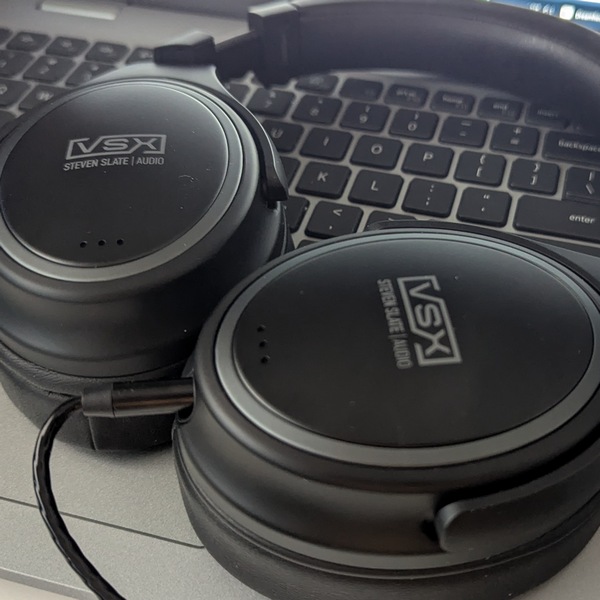What to Listen For, What to Check, How Do You Use These Things Anyway?
This is a reminder to myself about how to do a mix translation test using VSX headphones through the VST plugin, after doing the bulk of mixing in Linear Mode.
* * *
1. Linear (Flat / Microscope View)
Play 20–30 sec mid-strength section
- Check local loudness relative to snare/kick.
- EQ balance has no harsh spikes, not dull anywhere.
- Bass and kick drum has nice separation.
- Listen for sibilance, cymbal/hi-hat/high end harshness
- Mono check (quick flip: does vocal stay centred? Does low end collapse?).
2. Mix Room – Nearfield (Producer’s Laptop Monitors)
Play the same section.
- Vocal placement sits in the mix, not on top or buried.
- Snare/guitar/keys clarity in the mids.
- Kick vs bass relationship in low end okay?
- Does reverb delay stick out?
- Small level tweaks (1-2 dB) often shine here.
3. Mix Room – Midfield (Full Mix Perspective)
Play peak song section.
- In low end does kick + bass still feel solid.
- Panning/reverb/stereo balance feels okay, no phaseyness.
- Automations and arrangement flow - do transitions lift the energy?
- Overall size - not too thin, not boxy.
4. SUV (Car Test)
Play full chorus/bridge at a higher volume.
- Vocals still audible? (cars bury them if too low).
- Kick + bass groove not too boomy?
- Sub-bass control - does anything rattle or overwhelm?
- Harshness at loud playback - does the mix stay smooth?
- Does the song feel exciting/hyped?
5. SA-Pods (Earbud Reality Check)
Play chorus at low–moderate volume.
- Vocals cut clearly (lyrics understandable).
- Snare/guitar mids provide drive even if bass vanishes.
- Quiet-volume test - does the mix still feel compelling?
- If it works here, it works anywhere.

No comments:
Post a Comment